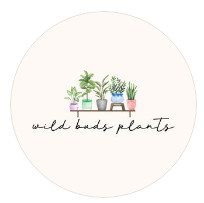The Dirt on Choosing the Best Soil for Your Indoor Plants: A Green Thumb’s Guide
Why Soil Matters: The Foundation of Your Indoor Garden
So, you’ve decided to delve into the captivating world of indoor plants, huh? Think of soil as the bedrock foundation of your indoor garden empire. If you’re envisioning your space filled with lush, vibrant plants, then the soil you choose isn’t something to overlook. Imagine building a house on a weak foundation. Eventually, it crumbles, right? The same principle applies to soil; picking the right one is like laying a strong foundation for a skyscraper of verdant bliss!
The Chemistry of Soil: What’s in the Mix?
Let’s break it down, shall we? Soil isn’t just dirt; it’s a cocktail of organic matter, minerals, water, and even some tiny critters! Now, the question pops up: Why should you care about the chemistry of soil? Well, different plants require different cocktails—just like people!
Ingredients to Look Out For
- Organic Matter: Think of this as the “munchies” for your plants.
- Minerals: These are the vitamins and essential nutrients.
- pH Level: Some plants prefer a mimosa, while others might go for a Moscow Mule; your plant’s preference for acidic or alkaline soil is their version of a favorite cocktail!
Pick the Soil that Sings Your Plant’s Tune
You wouldn’t play jazz music for a metalhead, would you? Similarly, plants have their genres—cacti, succulents, tropical plants, and so on. The soil has to vibe with the plant, guys.
For Succulents and Cacti
Choose a fast-draining mix, often sand-based. Think of it as the beach vacation your desert-loving plants crave.
For Tropical Plants
These are your high-maintenance friends who love drama. Opt for a peat-based mix that holds moisture well but still offers good drainage.
For Edibles like Herbs and Veggies
Go organic! They’ll be a part of your meals, after all. Choose soil rich in organic matter and nutrients.
Hands-On Time: Make Your Own Soil Mix
Feel like cooking up your own special soil recipe? It’s easier than making a Sunday roast, I promise.
- Decide Your Base: Choose between coco coir, peat moss, or compost.
- Add Aeration: Perlite, vermiculite or even some tiny rocks work well.
- Mix in Nutrients: Bone meal, worm castings or compost can be your go-to.
- Test the pH: Aim for a balanced cocktail for your plant babies!
The Nitty-Gritty: Testing and Tweaking Your Soil
Okay, you’ve chosen or mixed your soil. Now what? Test, tweak, repeat!
- Moisture Test: Is the soil draining well? No one likes waterlogged roots.
- Nutrient Test: Are your plants looking vibrant or more on the dull side?
- pH Balance: Get a soil test kit and aim for your plant’s happy zone.
Your Green Empire Awaits!
Congratulations, you soil sorcerer, you! You’re ready to conquer the world—or at least the little green world inside your home. So go ahead, pick up that soil mix or whip up your own and start planting.
FAQs
- Can I use garden soil for indoor plants?
- It’s not recommended. Garden soil can contain pests and might not offer the drainage indoor plants need.
- Is it necessary to sterilize homemade soil mix?
- While not strictly necessary, sterilizing can eliminate potential pests or diseases.
- How often should I replace the soil for indoor plants?
- A general rule is every 12-18 months, but it depends on the plant type and its growth rate.
- What’s the deal with pH levels?
- pH levels indicate how acidic or alkaline your soil is, which impacts nutrient absorption.
- How do I know if my plant is unhappy with the soil?
- Signs can include stunted growth, yellow leaves, and root rot.
- Can I mix different types of commercial soil?
- Absolutely, it’s like creating a custom cocktail for your plant!
- Do I need to add fertilizer to the soil?
- It depends on the nutrient content of your soil. Some mixes come pre-fertilized.
- Is perlite the same as vermiculite?
- No, perlite improves drainage while vermiculite retains moisture.
- Can I reuse soil from a dead plant?
- It’s risky and not recommended, as the soil might contain pests or diseases.
- What’s the best store-bought soil?
- It varies based on your plant’s needs, but look for reputable brands with organic ingredients.
Hungry for More Plant Talk? Check Out These Topics:
- Indoor Plant Lighting Guide: How to give your plants their daily dose of sunshine.
- Watering Woes: Overwatering vs. underwatering and how to strike a balance.
- Pest Control: Safeguarding your green haven from unwanted invaders.
- Plant Nutrition: A deeper dive into fertilizers and plant food.
- Container Gardening: Elevate your indoor garden game with the right containers.

